All content on this site, unless otherwise specified, is © Copyright Ian McGowan / Winged Fist Organization. Web Design Conrad Landais
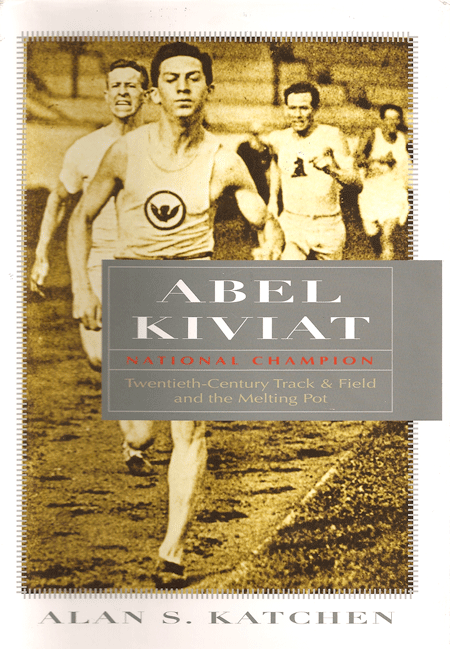
Abel Kiviat (1892-1991) was one of track and field’s legendary personalities, a world record-holder and Olympic medalist in the metric mile. A teenage prodigy, he defeated Hall of Fame runners before his twentieth birthday. Alan S. Katchen brings Kiviat’s fascinating story to life and re-creates a lost world, when track and field was at the height of its popularity and occupying a central place in America’s sporting world.
The oldest of seven children of Moishe and Zelda Kiviat, Jewish immigrants from Poland, Abel competed as "the Hebrew runner" for New York’s famed Irish-American Athletic Club and was elected its captain. Katchen’s engaging biography centers Abel Kiviat’s life and his sport firmly in the context of American social history. As a quintessential New Yorker, Kiviat embodies the urban and ethnic roots of American track. From his first schoolboy competitions on city playgrounds, to his world records at Madison Square Garden, to his pioneering role as track’s press steward in the age of emerging media, Kiviat’s life reveals how his sport was shaped by the culture of the emerging metropolis. New York City is not only the setting for these developments but also a subject of the book. The narration is enriched with brief portraits of celebrated track athletes including Kiviat’s Olympic roommate, Jim Thorpe. In addition, Katchen offers a detailed account of the I-AAC’s evolution, including its close ties to the Tammany Hall political machine, and sheds light on the rapid modernization of the sport and the ways it provided a vehicle for the assimilation of working-class, immigrant athletes. Finally, Katchen explores the social origins of the ideology of amateurism and its devastating impact on Kiviat’s career.
Kiviat died at ninety-nine, just months short of carrying the torch for the opening ceremonies of the Barcelona Olympics. Abel Kiviat, National Champion pays tribute to a remarkable athlete and the sport during its most dynamic and celebrated era.
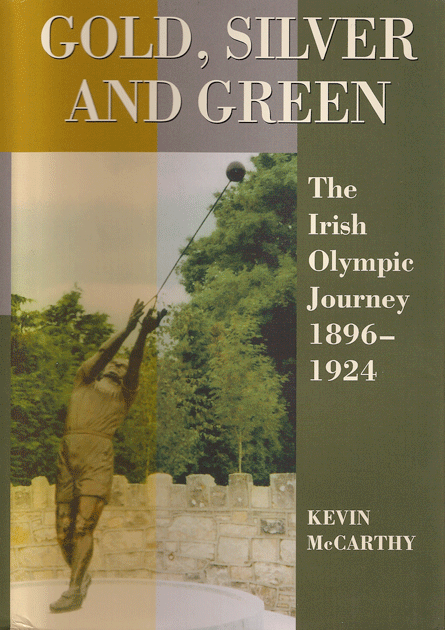
Gold, Silver and Green focuses on the Irish and Irish diasporal involvement in the Olympic Games. It discusses in detail the sporting involvement but, even more so, the political and national battles which accompanied the Irish Olympic journey prior to independence. It challenges our traditional perceptions of sporting nationalism and places the Irish story in a quite unique international context, showing how decisions made in London, Lausanne and New York had a profound impact on the Irish sporting, and national, destiny.
This book is the product of six years of research across Ireland, London, New York and Switzerland. It seeks to shed light on the half-known story of Irish involvement in the Olympic Games prior to independence. The research has unearthed a huge amount of information, most of it previously unpublished. Few people will have known that hurling and Gaelic football formed part of an Olympic Games, or that Ireland competed as a separate nation in events like bicycle polo and hockey long before independence.
The author traces the story of Irish and Irish American Olympic involvement from its accidental beginnings in 1896 through to the very significant political issues which dominated Irish sports, and our Olympic aspirations in the early 20th century. He has traced the role played by the Olympic Games in the evolution of a national identity in Ireland, and in the emergence of Irish America as a major sporting and political force in the USA. Political figures from Arthur Griffith, Roger Casement and John Devoy are all entwined in the Irish Olympic story.
The work highlights the divisions and complexities within Irish sport, as well as the significant influence of the British Olympic Association as a barrier to Irish recognition at the Games. It charts the political intrigue behind the scenes in London and Lausanne as Ireland sought Olympic recognition after the 1921 Treaty. Most of all, this work highlights the magnificent achievements of the sportsmen, and one woman, who originated in the main from rural Ireland and won substantial Olympic success in throwing and jumping events, the Marathon, tennis, and other events.
Imagine Wilt Chamberlain mano a mano with Kareem Abdul-Jabbar at The Forum. And Ben Hogan teeing off, Billie Jean King chasing down a lob, Fernando Valenzuela looking skyward. How about Cassius Clay, before he became Muhammad Ali, weighing in at the Olympic Auditorium, and Don Drysdale throwing his fastball at Van Nuys High, and Evelyn Ashford running beneath the Olympic flame at the Los Angeles Coliseum.
Now, turn the pages and see how L.A.’s top newspaper photographers captured these and other superstar athletes in the city’s most important sports moments. This is Play by Play: Los Angeles Sports Photography 1889-1989.
Basketball, baseball, football, soccer, boxing, golf, horse races, auto races, bodybuilding, surfing, tennis–the action unfolds before your eyes. Replay the most unforgettable moments in a city that has hosted seven Super Bowls, two Olympic Games, numerous World Series, World Cups and L.A. Opens. It’s sports at its swaggering, competitive best.
These vintage images have historic relevance beyond southern California. Here’s baseball pioneer Jackie Robinson as a standout collegiate athlete at UCLA. Here’s track star Babe Didrikson, the first superstar female athlete, winning gold medals at the 1932 Olympics. Babe Ruth being wooed to Hollywood. And a pre-Terminator, pre-governor Arnold Schwarzenegger at Joe Gold’s original gym.
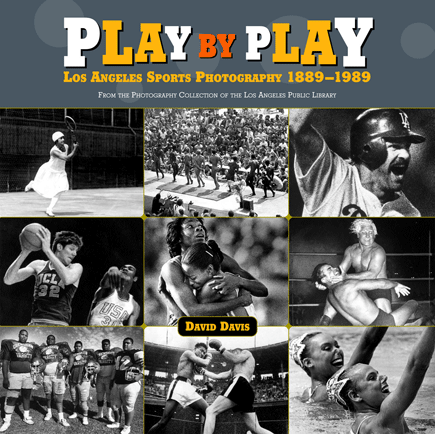
Award-winning sportswriter David Davis selected more than two hundred images from the Los Angeles Public Library Photograph Collection for the exhibit “Play by Play.” This companion book features the top images from that dynamic exhibit, showcasing the athletic prowess of a city known for glamour and glitz. Here, sports takes center stage—and overwhelms and entertains and excites.
DAVID DAVIS has written for Sports Illustrated, the Los Angeles Times Sunday Magazine, the New York Times, the Village Voice and the Forward. His feature story about boxer Jerry Quarry, which originally appeared in L.A. Weekly, was included in the Best American Sports Writing anthology (1996 edition). Currently, he is a contributing writer at Los Angeles magazine and writes for the Amateur Athletic Foundation’s SportsLetter.
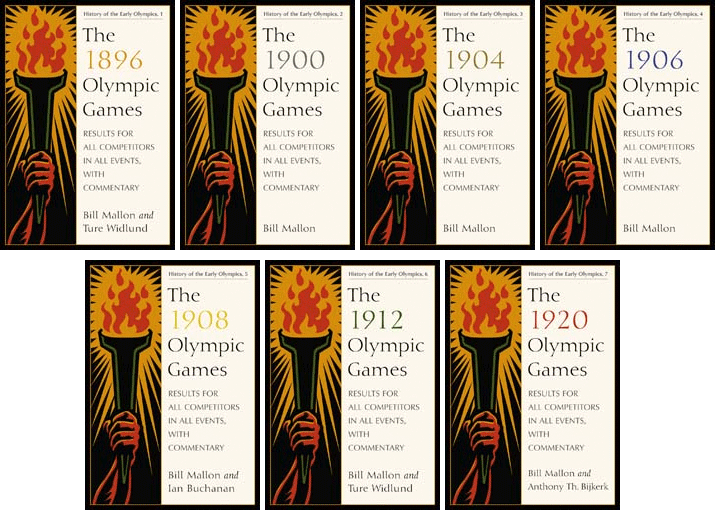
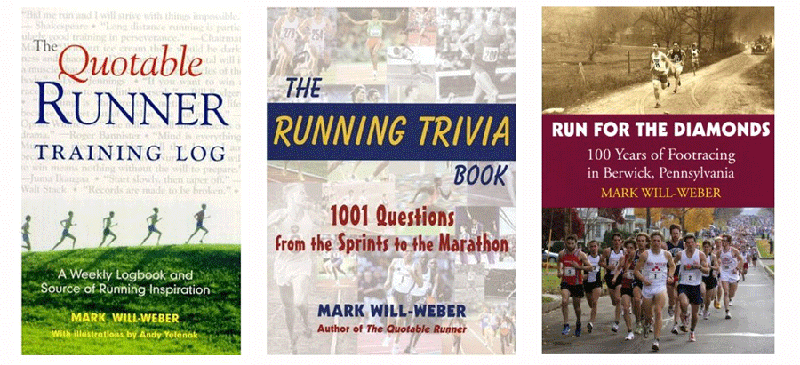
A former senior editor/writer at Runner’s World, Mark Will-Weber has published three books on running with Breakway Books—including The Quotable Runner, which was later translated into Japanese. His latest book is Run for the Diamonds: 100 Years of Foot-racing in Berwick, Pennsylvania, a history of that intriguing event. In addition to his books and Runner’s World articles, Will-Weber has also been published in the New York Times (on-line), The Irish Runner, and The Runner’s Gazette.
MARK WILL-WEBER's Run for the Diamonds: 100 Years of Footracing in Berwick, Pennsylvania takes readers through the turns, stretches, and hills of American running by way of one of its oldest races. Berwick's grueling Run for the Diamonds has attracted some of the world's greatest runners and running pioneers, whose experiences are described with insight and admiration.